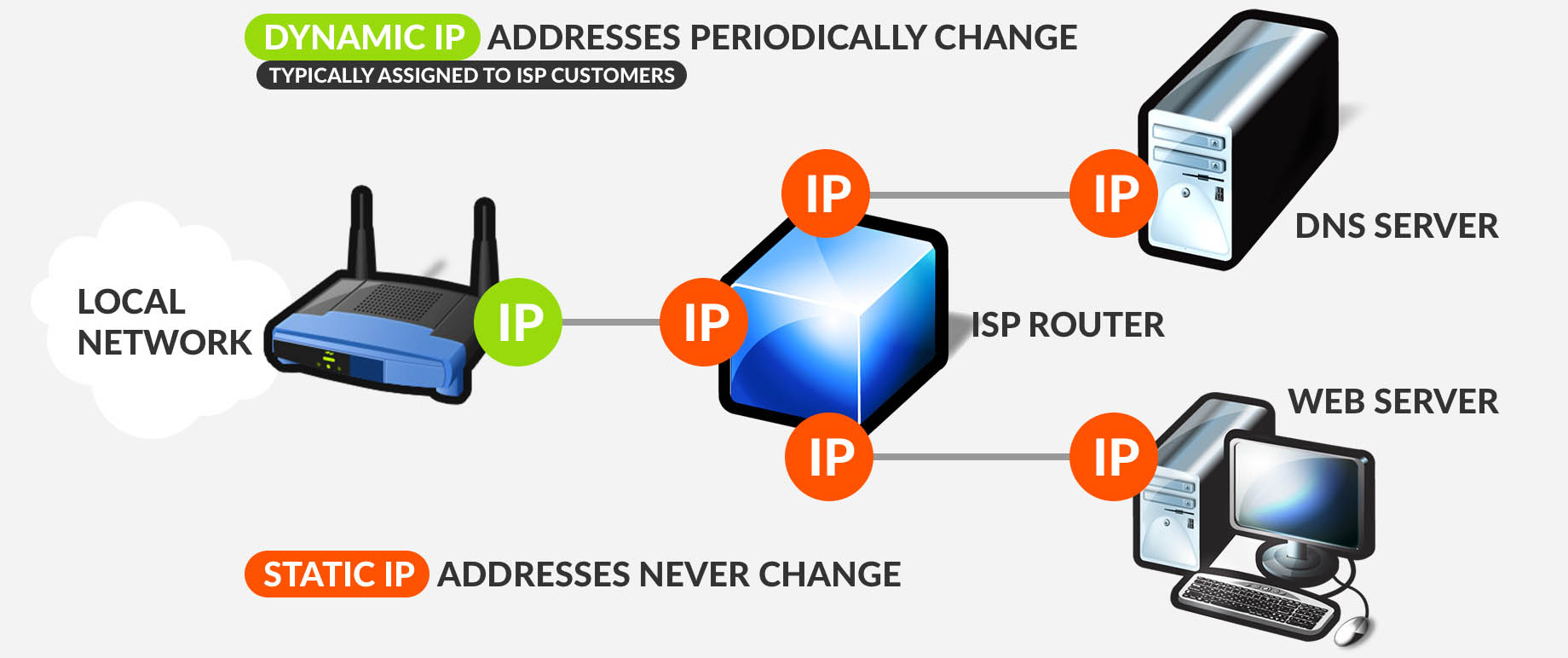Static vs. dynamic IP addresses, What are the differences between them?
Before we can understand the definition and differences of Static and Dynamic IP addresses, we must first define the IP address.

What is an IP Address?
An IP address is defined as an abbreviation of Internet Protocol in English and an IP Address. Every device that connects to the Internet needs an IP address. You can think of it like the citizenship numbers (TC ID) that countries assign to their citizens. IP addresses are unique addresses that devices connected to the internet or any other computer network use to send data to each other over the network.
This does not apply only to the internet or large networks. Each computer must be assigned an IP address in small networks, corporate networks, and even when connecting two computers. In short, IP addresses are a protocol that provides communication between computers.
Currently widely used IP addresses are defined as IP version 4 ( IP V4 ). IPv4 is 32 bits long and is represented by an 8-bit number consisting of 4 octets separated by dots. An example of this is 192.168.2.2.
What is Dynamic IP vs Static IP? What are the Differences?
- Static IP Addresses
- Dynamic IP Addresses
The IP addresses we use in our home networks are generally defined as dynamic IP addresses. (Of course, you can get a static IP address by paying the fee from your service provider.)
Static IP Address
Static IP addresses are generally used in institutions, servers where websites are hosted, or similar large systems. The most important reason why it is preferred is that it is fixed and not variable. The IP addresses of assets such as our servers and websites that we host on the Internet should be fixed. Otherwise, it would be very difficult for us to reach these servers, or even impossible when the IP address changes. When you want to enter a website, you first connect to the server of that website. Your internet service provider directs you by detecting your web server's ip address through DNS servers.
Fixed IP addresses are used in many large or small structures such as VPN servers, FTP servers, DNS servers, corporate web servers, game servers. In this way, routing to fixed IP addresses through your name servers is done successfully.
Dynamic IP Address
Dynamic IP addresses differ from static IP addresses. Every time you connect to the Internet, a new IP address is defined to your computer. When you disconnect your internet connection, this IP address is allocated to another person. Your dynamic IP addresses can be changed automatically (without disconnection) by your service provider, even while surfing the Internet.
What is the Difference Between Static and Dynamic IP Addresses?
When you connect to the Internet, you can find out your IP address through IP query sites or from the interface of your internet modems. If your IP addresses are dynamic, they will change constantly. The same IP address is not defined for two people on the same network. Internet service providers can use NAT technologies (for savings) to enable many people to access the Internet over the same IP address. However, your local addresses at the service provider are unique and the same IP address is not defined for two people. In order to do this and save on IP addresses, technologies we call NAT are used. However, this does not apply to static IP addresses. Static IP addresses are unique and these IP addresses are used by identifying a single line without being given to two or more people at the same time. This is the key difference between static and dynamic IP addresses.
Use of Dynamic and Static IP in Firewall Devices
In firewall devices, you can distribute ip dynamically or statically to all computers in your internal network in general. This distribution process is set from the section specified as DHCP on your Firewall device. Using DHCP , you can distribute a fixed local ip (local ip) address to all your computers, tablets or phones inside. At the same time, it is possible to get information about which IP address in your internal network is defined on which computer or smartphone, by keeping a log within the KVKK compliance process.
Static IP address is generally defined for internet access connection on Firewall devices . Many companies get fixed, static IP addresses for their internet connections from Telecom companies for VPN and similar services. Again, by defining a static ip address for the login you have defined the internet connection on your firewall device, you can enable all your users to access the internet via this ip address, and you can enable your mobile employees to use secure internet by connecting to your static ip address with VPN protocol.